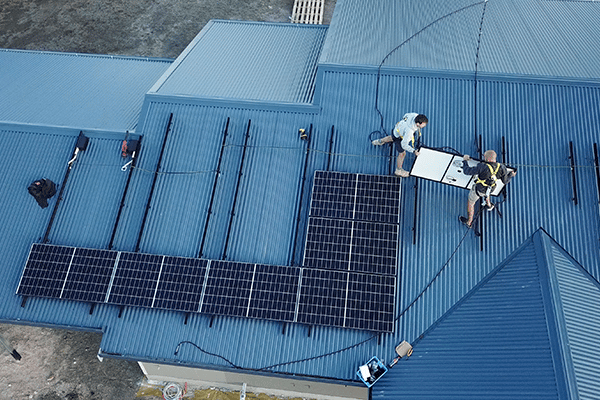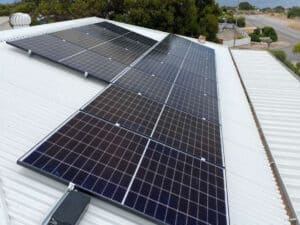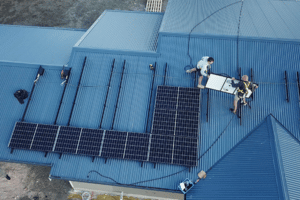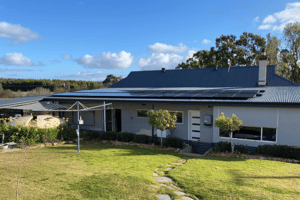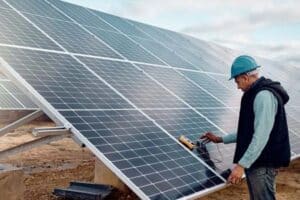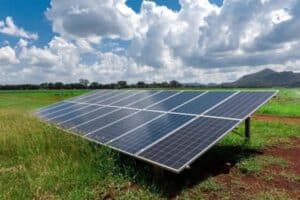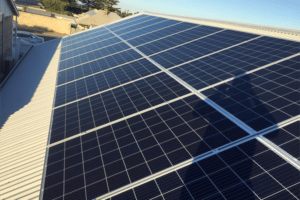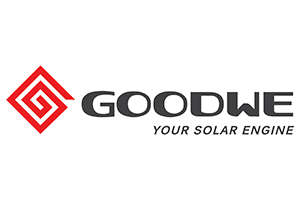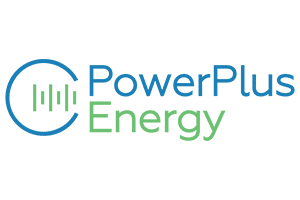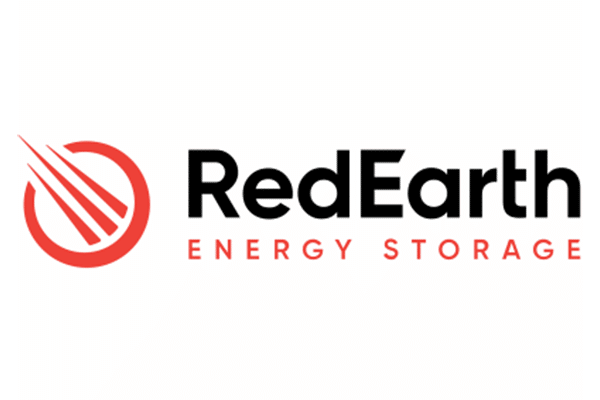Investing in a solar power system for your home can be an excellent way to save money on energy bills and reduce your carbon footprint. However, selecting the right size for your solar system is essential to ensure you maximise your investment. In this comprehensive guide, we’ll walk you through the process of choosing the right solar system size for your home.
Assess Your Energy Needs
Before selecting a solar power system, it’s crucial to understand your household’s energy consumption. To do this:
- Review your electricity bills: Check your electricity bills to determine your average daily energy usage. This information can help you estimate the size of the solar system you’ll need to offset your energy consumption.
- Identify energy usage patterns: Examine your household’s energy usage patterns, such as peak hours, to better inform your solar system size choice.
Solar System Components
To choose the right solar system size, it’s important to understand the different components that make up a solar power system. These components include:
- Solar panels: The solar panels convert sunlight into electricity. The number and efficiency of your solar panels will impact the overall size of your system. Visit Yorke Solar’s solar panels page to learn more about your options.
- Inverter: The inverter converts the direct current (DC) electricity generated by the solar panels into alternating current (AC) electricity that can be used in your home.
- Solar battery (optional): A solar battery can store excess energy generated by your solar panels for use during peak hours, at night, or during power outages. Visit Yorke Solar’s solar battery page to explore available options.
Factors to Consider When Choosing Solar System Size
When determining the appropriate solar system size for your home, consider the following factors:
- Roof size and orientation: The size and orientation of your roof will affect the number of solar panels you can install and the amount of sunlight they’ll receive.
- Energy consumption: Your household’s energy consumption will dictate the size of the solar system needed to meet your energy needs.
- Budget: The size of your solar system will impact the overall cost. Make sure to factor in your budget when deciding on system size.
Common Solar System Sizes
Solar systems are commonly available in several sizes, including:
- Small (1-2 kW): Suitable for small homes or apartments with low energy consumption.
- Medium (3-5 kW): Ideal for average-sized homes with moderate energy consumption.
- Large (6-10 kW): Best for large homes with high energy consumption or those looking to offset the majority of their energy usage.
To help you decide on the right solar system size, consider obtaining solar quotes from reputable providers like Yorke Solar.

Seek Professional Advice
Working with a reputable solar installer like Yorke Solar can help ensure you choose the right solar system size for your home. An experienced solar installer can assess your energy needs, roof size, and orientation to provide tailored recommendations for your specific situation.
Conclusion
Choosing the right solar system size for your home is an essential step towards maximising your investment in solar energy. By assessing your energy needs, understanding solar system components, and considering factors like roof size and budget, you can make an informed decision on the best solar system size for your home. Remember, it’s always a good idea to seek professional advice from a reputable solar installer to ensure you make the best choice for your unique situation.
Monitor Your Energy Usage
Once your solar system is installed, it’s important to monitor your energy usage and solar production. This will help you make adjustments to your energy consumption habits and ensure that you’re getting the most out of your solar system. Many solar inverters and monitoring systems now offer smartphone apps, making it easy to track your energy usage in real-time.
Government Incentives and Rebates
When choosing a solar system size, it’s also essential to consider any government incentives and rebates available in your area. These incentives can significantly reduce the upfront cost of your solar system, making it more affordable. Visit Yorke Solar’s South Australia page to learn more about the incentives and rebates available in South Australia.
Maintenance and Upgrades
Maintaining your solar system is crucial to ensure it continues to operate efficiently and provide you with clean energy. Regular maintenance tasks include cleaning the solar panels, checking the inverter and monitoring system, and inspecting the mounting hardware. If you find that your energy needs change over time, you may also want to consider upgrading your solar system to a larger size or adding a solar battery for additional storage.
The Environmental Impact
In addition to saving money on your energy bills, choosing the right solar system size for your home can have a positive impact on the environment. By generating clean, renewable energy, you’re reducing your reliance on fossil fuels and contributing to a more sustainable future. As solar technology continues to improve, investing in a solar system for your home is not only a wise financial decision but also a responsible choice for the planet.
Final Thoughts
Selecting the right solar system size for your home can seem like a daunting task, but with careful consideration and professional guidance, you can make a well-informed decision. By taking into account your energy needs, roof size, budget, and government incentives, you can choose a solar system that maximises your investment and contributes to a more sustainable future. Remember, always consult with a reputable solar installer like Yorke Solar to ensure you get the most out of your solar energy system.

